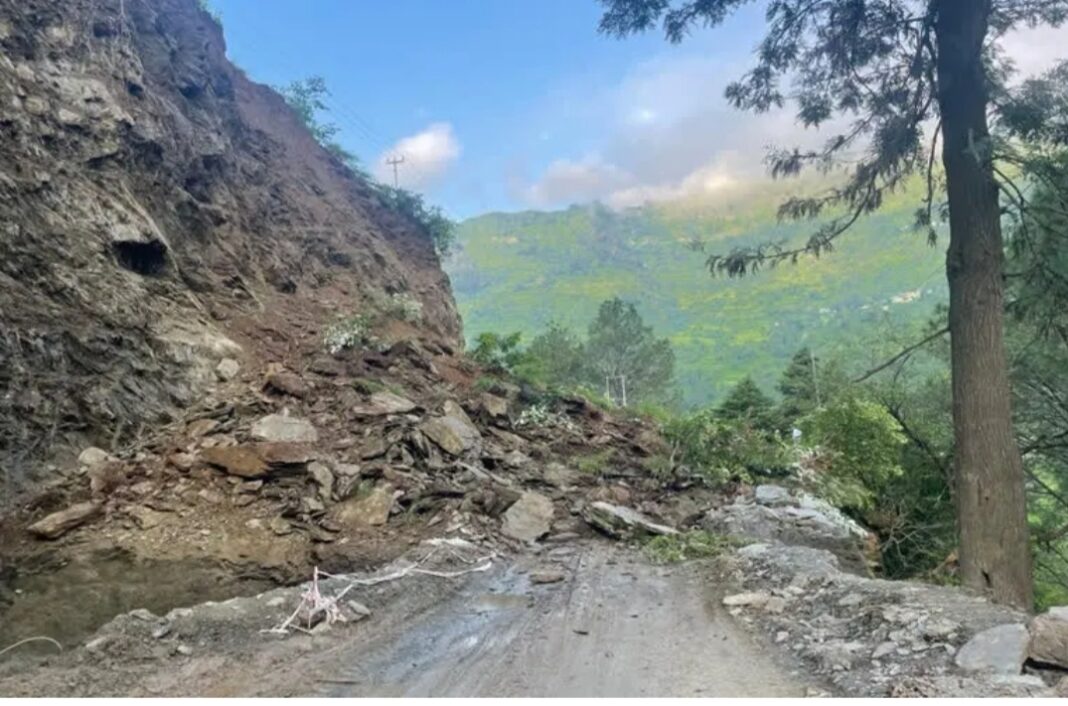Although, Manipur has another road connection via Dimapur in Nagaland, this highway is the lone road connecting Tripura, Mizoram, and Southern Assam with other parts of the country.
The Northeastern region is prone to landslides for the most part. One of the significant landslides occurring site lies at Sonapur, which is situated in Meghalaya. The landslip zone is located on National Highway 6 in the Jaintia Hills district of the state, 141.8 kilometers from Shillong, following the path of a perennial stream that descends on the left bank of the Lubha River.
It is an old, ongoing slide of rock and debris. It becomes active during the rainy season and seriously impairs communication on the roads. In the slide zone, the Oligocene-aged Barail Group sandstone, siltstone, and shale sequence is revealed, according to a study.
The study revealed the poor rock quality, unfavourable orientation of joints, and triggering effect of water during the rainy season leading to sliding activity in the area.
In 2008, the Border Roads Organisation (BRO) built a tunnel of 123-meter length to deal with the frequent landslides. It proved beneficial for first few years to combat the landslip. However, in the last three to four years, the landslides have increased their stretch and recurrently block the mouth of the tunnel on two sides.
Following the onset of monsoon rains in June this year, the landslides at Sonapur disrupted road connectivity on almost every alternate day. Traffic often comes to a standstill for more than 12 hours.
Abhilash Baranwal, the Deputy Commissioner of East Jaintia Hills district in Meghalaya told IANS: “As soon as it starts raining in the hills, the landslides begin to occur. In the previous year, only heavy rain was triggering the landslide. However, this time, even light rains cause the landslip.”
As it is an extremely important highway connecting four states, a long queue of vehicles is witnessed on both sides after every disruption happens following the landslide.
The district administration along with the National Highway Authority of India (NHAI) remains busy to clear the mudslide and debris but these practices are temporary as the road connectivity is set to be hit badly during the whole monsoon season this year.
“We keep machines prepared all the time to clear the debris but it is not a permanent solution. The commuters will continue to suffer till some permanent solution,” said Baranwal.
Anand Singh Chauhan, the Project Director of NHAI at Shillong who has been camping for the last few days in the landslide zone said: “Earlier, the landslides were occurring on 20-25 meter stretch and the tunnel was competent enough to hold the mudslides but now the landslide has been extended and mud along with rocks is blocking the two sides of the tunnel.”
According to Chauhan, the NHAI has begun to look for a permanent alternative but things are very complex.
There are two alternatives – either the tunnel should be extended up to a certain distance on both sides or some elevated portions are built to stop the debris coming on the highway. However, both alternatives require a substantial amount of time and funds.
The National Highways & Infrastructure Development Corporation Limited (NHIDCL) has been planning to build a four-lane highway through this route. The agency also has started to prepare a Detailed Project Report (DPR).
Talking to IANS, the Regional Officer in the Northeast for NHAI, C.M. Dwivedi said: “NHIDCL will bypass the portion of the tunnel and they may build an alternate route. At present, the speed limit on the current highway is around 40 km and the NHIDCL is looking to make it double and for that, they may go for a diversion.”
However, the project undertaken by the NIDCL is a long-term one and may require at least four to five years to complete. In the meantime, NHAI must look for a solution to the issue of the landslide at Sonapur.
“We are exploring every possible alternative. We have talked with the higher officials for a semi-permanent remedy at the site of the tunnel,” Dwivedi said.
Any new construction either an extension of the tunnel or building an elevated portion would require at least a year. Meanwhile, the repeated disruption in the singular route connecting several northeastern states would remain a major concern during the entire rainy season.
–IANS
tdr/dan
